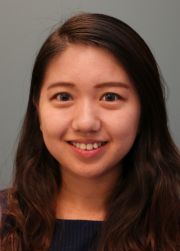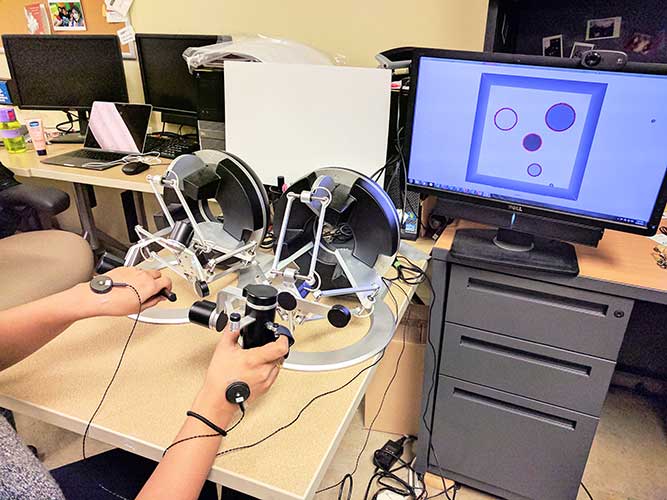IE PhD student named to NSF I-Corps cohort
Zhang is one of two Purdue engineering graduate students accepted into this national program. The other student, Shruthi Suresh, is in the School of Biomedical Engineering, and both are advised by Associate Professors Brad Duerstock and Juan Wachs.
The Purdue I-Corps program is overseen by Matthew Lynall, Director of the Purdue NSF I-Corps Site and Clinical Associate Professor in the Krannert School of Management. Charles Yu of the Purdue Foundry will advise the students.
Zhang's research is about helping people who are blind or visually impaired and studying science. As part of both Wach's ISAT lab and Duerstock's IAS lab, she is working on developing haptic devices – interfaces that give feedback by touch and other non-visual perceptual systems – to let people interpret visual information using their hands and other senses.
"The goal for this program is to know more about what the current needs are for the market and how our technology fits to meet the needs," said Zhang. "We will do 100 customer interviews in this program, [then] share and discuss our findings with other teams."
The I-Corps program gives faculty and graduate student researchers the opportunity to travel to perform market research and determine the value of their research to potential users and customers, while gaining first-hand experience in turning a research idea into a commercial product. "Often a doctoral student will develop innovative research that may have tremendous social or commercialization potential but rarely gets a chance to take it any further than publications or a patent application," explained Duerstock.
"The seven-week curriculum for the national I-Corps program is built on a framework of business model design, customer development and agile engineering – and its emphasis on evidence-based entrepreneurship," according to Lynall. "Its success is measured not only by the technologies that get funded and leave the labs, but how many U.S. scientists and engineers embrace academic entrepreneurship and pass on their knowledge and experience to students."
Zhang looks forward to the practical application of the program. "It will help me know how research can be applied to the industry and becomes useful for real life," she said. "It will also give us more connections in both academia and industries."
More: IE "science of touch" Wachs/Duerstock research featured in New Scientist
NSF Innovation Corps (I-Corps™) is a National Science Foundation (NSF) program, delivered in partnership with over 70 U.S. universities, including Purdue. The objective of the program is to help university researchers develop a path to commercialization for their discoveries. The National program provides I-Corps teams (a PI, PhD/Postdoc, and Industry Mentor) with travel funding and instructional support from experienced entrepreneurs and investors to meet with over 100 potential customers and other stakeholders to test, refine, and validate their hypothesized business model.


